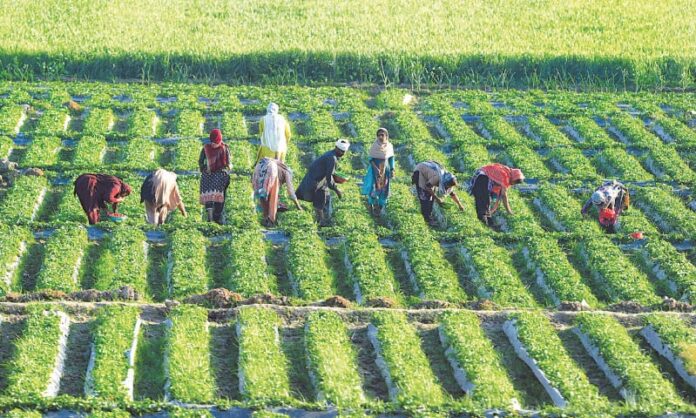ISLAMABAD, Jan 16 (NNN-APP) – Pakistani experts believe that, the country needs to adopt more sustainable agricultural practices, to ensure food security and counter climate change impacts on the agriculture sector in the country.
During a seminar titled “Food Systems – Climate Change Nexus for a Resilient Future,” yesterday, the experts stressed the need to develop policy actions that regulate access and use of resources such as land, water, and biodiversity in a sustainable way.
Speaking on the occasion, Director General of the World Wide Fund for Nature Pakistan, Hammad Naqi Khan, said that, climate-smart water and land management practices must be adopted by farmers to address agriculture issues.
“Most of the traditional farming practices are not ecologically sustainable in Pakistan. Natural resources are being misused, reducing soil fertility, causing erosion, and contributing to climate change,” he said, underlining the need to address the loss of prime farmland to urbanisation.
To cater to the food demand of the country’s growing population, the expert said that, key policy recommendations and action plans are required for concrete and actionable decision-making on food production and consumption.
Country Director of the Global Alliance for Improved Nutrition, Farrah Naz, said that, the critical link between climate change and nutrition can no longer be neglected.
“We must prioritise the development of better food systems and secure global financing, to ensure everyone has access to affordable, nutritious food,” she said.
She added, investing in climate-resilient agriculture and nutrition programmes is not only a moral imperative, but also a sound economic strategy for building healthier, more sustainable communities.
Talking about the challenges, Ali Tauqeer Sheikh, a Pakistani policy expert, said, the current climate finance systems are falling short, highlighting that a new approach is needed that integrates water management, leverages private-sector expertise, and harnesses innovative financing tools, to build stronger, more resilient communities in the face of climate change.– NNN-APP






